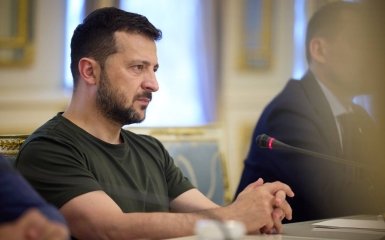According to Ukrainian leader Volodymyr Zelenskyy, it is the world community that should put pressure on the illegitimate president of Russia, Vladimir Putin, to bring him to the negotiating table to end Russia's war against Ukraine.
Points of attention
- Zelenskyy believes that diplomacy can help return Ukrainian territories occupied by Russia.
- Putin refuses peace talks, claiming that he does not believe in positive steps from Kyiv.
- Ukraine is counting on the support of the West to end the war started by the Russian Federation.
Ukraine expects that the West will be able to influence Moscow
The head of state hopes that the Armed Forces of Ukraine will not have to return to all territories by force, losing many soldiers and equipment.
Volodymyr Zelenskyy believes that the power of diplomacy can play a decisive role in this issue.
He also added that a weaker Russia on the battlefield would strengthen Ukraine's position at the negotiating table.
By putting pressure on Russia, I think it is possible to agree to a diplomatic settlement.

Volodymyr Zelenskyy
President of Ukraine
Zelenskyy also asked when he might resign from the post of President of Ukraine.
But not until the war is over, — said the head of state.
Putin refuses peace talks on Ukraine's terms
Recently, Russian dictator Vladimir Putin once again cynically stated that he is not going to decide on a ceasefire.
According to him, he does not want to do this because, they say, he does not believe in positive steps by the team of Ukrainian leader Volodymyr Zelenskyy.
This is the first. Second. We cannot allow that after the ceasefire, the adversary will take advantage of this ceasefire in order to improve its position, to arm itself, to equip its army with the help of violent mobilization and to be ready for the continuation of the armed conflict, — the illegitimate head of the Kremlin cynically lies.
The Office of the President of Ukraine has not yet commented on these scandalous statements in any way.




